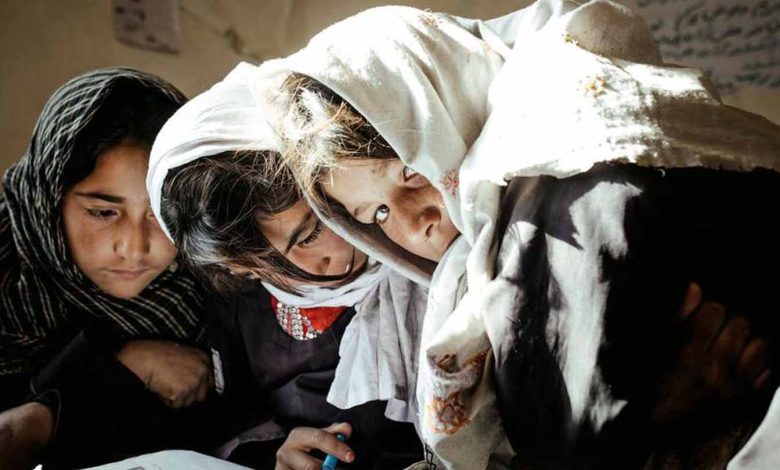“Education for girls” in Afghanistan and the fate of humanitarian aid

The Taliban’s decision to ban women’s education shows the militants’ tightening grip on the movement, and reflects a power struggle that threatens the fate of humanitarian aid the people need.
The denial of education to young women has sparked international condemnation and confusion within the movement.
A senior Taliban member told AFP that the decision was devastating and that the supreme leader intervened personally.
Last month, authorities ordered the closure of girls’ secondary schools, a few hours after they were allowed to reopen for the first time since the Taliban returned to power in August.
The shocking change in attitude came after a secret meeting of the movement’s leadership in Kandahar, the Taliban’s actual center of gravity. No official was quoted as justifying the decision, saying only that the education of girls should be in accordance with Islamic principles.
But a senior Taliban official told AFP that Supreme Leader Hibatullah Akhundzada and other leaders were deeply conservative and had overshadowed the discussions.
Two factions emerged in the ranks of the movement: the first is a conservative hardliner, and the second is more open-minded, the official said. The hard-line conservatives won this round, he said, referring to a group of clerics, including Taliban Justice Minister Abdul Hakim Shari and Minister of Advocacy, Guidance and the Promotion of Virtue and Prevention of Vice, Sheikh Mohammad Khalid.
Clerics feel excluded from government decisions and voicing their opposition to girls’ education is a way to regain their influence, said Ashley Jackson, an Afghanistan researcher.
The enormous influence of this minority is preventing the country from moving forward on a path favored by a large majority of Afghans, including leaders in the movement, the researcher said in a statement.
This influence shows that Kandahar remains the political center of gravity for the Taliban, said Graeme Smith, an analyst with the International Crisis Group.
“The militants are trying to appease thousands of fighters from the conservative countryside”, a senior Taliban official said. They consider it immoral for a woman to just leave her house, so imagine what it means to teach her.
He said Akhundzada opposes secular modern education and links it to what was the case under former President Ashraf Ghani and his predecessor Hamid Karzai.
The Taliban seized power last year after US forces invaded Afghanistan and ousted the movement from power in 2001.
In the 20 years following the overthrow of the Movement Government, girls were allowed to learn and women were allowed to work in all sectors, although the country remained conservative.
Young girls in Afghanistan have always taken classes in unmixed classes and adopted an Islamic curriculum, said Islamic activist and researcher Syaboush, so the ban shows that the Taliban seek to suppress women’s rights and make excuses for it.
A source in the Pakistani Taliban confirmed that there is a difference of opinion in this regard at the level of the leadership, but stressed that the movement is not at risk of division.
“There is a debate about this issue… But we are trying to overcome the differences”.
However, analysts say the ban is a setback for the Taliban’s efforts to gain international recognition for the legitimacy of their rule and to receive aid to address the country’s humanitarian crisis.
For Jackson, neither Akhundzada nor his close associates fully understand or appreciate the consequences of their decision for the international community, which has officially linked recognition of the Taliban to respect for women’s rights.












